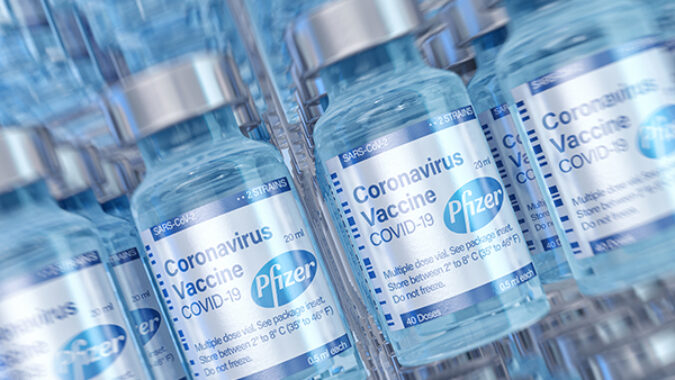The U.S. Food and Drug Administration gave full approval Monday to the Pfizer-BioNTech COVID-19 vaccine, a move which the U.S. Surgeon General predicted will encourage more universities and workplaces to require COVID-19 vaccinations.
Dr. Vivek Murthy told ABC “This Week” co-anchor Martha Raddatz on Sunday that full approval of the Pfizer-BioNTech vaccine would likely convince vaccine-hesitant individuals to get the shot and prompt more universities and businesses to implement vaccine mandates. The FDA announcement giving full approval to the vaccine occurred today.
“I think you’ll see more universities and workplaces that were considering putting in requirements to create safer places to learn and work – you’ll see more of them likely moving forward on their plans to require vaccines in the workplace and school,” Murthy said.
The U.S. Department of Justice has said that vaccine requirements do not violate federal laws, such as OSHA, ADA, or Title 7, provided there are reasonable accommodations for those who cannot be vaccinated for medical or religious reasons. However, some smaller businesses have been hesitant to implement a vaccine mandate because they fear frivolous litigation.
FDA approval of the two-dose Pfizer-BioNTech COVID-19 vaccine further undercuts the ability of employees to successfully challenge a workplace vaccine requirement, John Sarno, president of the Employers Association of New Jersey, recently told members of NJBIA’s Employment and Labor Law Policy Committee.
According to the FDA, the Pfizer-BioNTech COVID-19 vaccine will be marketed as Comirnaty (koe-mir’-na-tee), for the prevention of COVID-19 disease in individuals 16 years of age and older. The vaccine also continues to be available under emergency use authorization including for individuals 12 through 15 years of age and for the administration of a third dose in certain immunocompromised individuals.
An emergency use authorization (EUA) allows for vaccines, tests, and treatments to be used during a public health emergency based on best available evidence — without being fully FDA-approved. The Moderna and Johnson & Johnson (Janssen) vaccines continue to be available to Americans 18 and older under the FDA’s prior emergency use authorization.
Moderna said in June it too is seeking full FDA approval of its two-dose mRNA vaccine and has begun a “rolling submission” to the FDA of data for its Biologics License Application (BLA). Pfizer had submitted its BLA to the FDA in May as part of its successful effort to win full FDA approval of its vaccine.

